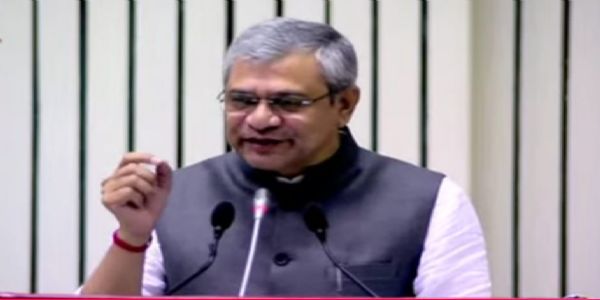
Delhi, 1 October (H.S.): In a major boost to farmers ahead of the upcoming sowing season, the Union Cabinet chaired by Prime Minister Narendra Modi on Wednesday approved an increase in the Minimum Support Prices (MSP) of all mandated Rabi crops for the Marketing Season 2026-27.
The Cabinet also cleared a landmark Rs.11,440 crore “Mission for Aatmanirbharta in Pulses” to achieve self-sufficiency in pulse production by 2030-31.
MSP Hikes for Rabi 2026-27
The Cabinet Committee on Economic Affairs (CCEA) approved higher MSPs for six key Rabi crops to ensure remunerative prices for farmers and promote crop diversification.
Safflower registered the highest MSP hike at Rs.600 per quintal, taking its support price to Rs.6,540.
Lentil (Masur) has been increased by Rs.300 to Rs.7,000 per quintal.
Increases for rapeseed & mustard, gram, barley and wheat stand at Rs.250, Rs.225, Rs.170 and Rs.160 per quintal respectively.
With this revision, wheat’s MSP has risen to Rs.2,585 per quintal, barley to Rs.2,150, gram to Rs.5,875, rapeseed & mustard to Rs.6,200, and masur to Rs.7,000.
The government highlighted that the new MSPs are aligned with its 2018-19 Budget commitment of fixing crop support prices at least 1.5 times the cost of production. The margin over cost of production has been fixed at 109% for wheat, 93% for mustard, 89% for lentil, 59% for gram, 58% for barley, and 50% for safflower.
Officials said the revised MSPs will bring more stability to farmers’ incomes while encouraging environmentally sustainable diversification.
Six-Year Mission for Pulses Self-SufficiencyIn another historic decision, the Cabinet approved the “Mission for Aatmanirbharta in Pulses” to be implemented from 2025-26 to 2030-31 with an outlay of Rs.11,440 crore.The mission aims to raise domestic pulses production to 350 lakh tonnes by 2030-31, reduce import dependence, and benefit an estimated 2 crore farmers.
Key features of the mission include:
Seed Revolution: Distribution of 126 lakh quintals of quality certified seeds and 88 lakh free seed kits to farmers.
Area Expansion: Additional 35 lakh hectares to be brought under pulses cultivation, targeting rice fallow areas and promoting intercropping.
Infrastructure Boost: Setting up of 1,000 processing and packaging units with subsidies up to Rs.25 lakh.
Assured Procurement: 100% procurement of Tur, Urad and Masoor at MSP for four years through NAFED and NCCF.
Technology & Training: Emphasis on pest-resistant, climate-resilient varieties, farmer training, and convergence with soil health and mechanisation programmes.
Market Safeguards: Monitoring global pulses prices to protect farmers’ interests.By 2030-31, the mission targets to expand pulses area to 310 lakh hectares, improve yields to 1,130 kg/ha, and significantly reduce imports, while creating rural employment and ensuring environmental sustainability.
The Centre said this dual-pronged approach—raising Rabi MSPs and launching a dedicated pulses mission—highlights its commitment to doubling farmers’ incomes and achieving food self-reliance.
Hindusthan Samachar / Jun Sarkar








